#0businesscreditcard
Explore tagged Tumblr posts
Text
House Impeachment Vote Is Unlikely to Sway Markets

Breaking: IAC and the online dating company Match Group have agreed to separate in a tax-free transaction. (Want this by email? Sign up here.)
Investors shrug off Trump impeachment
Voting nearly along party lines, the House approved two articles of impeachment against President Trump, making him the third president in history to face removal by the Senate. But the stock market has been largely unfazed by the news of impeachment proceedings, and that is unlikely to change, reports MarketWatch. Investors are shrugging at the news because they don’t expect the Republican-controlled Senate to remove the president from office. Market participants have grown more comfortable with the expectation that Mr. Trump would be impeached but not convicted, according to an investor survey conducted by RBC Capital Markets.
Obamacare insurance mandate is struck down
A federal appeals court yesterday struck down the provision of the Affordable Care Act that requires Americans to have health insurance, saying it was unconstitutional, but the future of the decade-old health care law is still in limbo, writes the NYT’s Abby Goodnough. The decision did not invalidate the rest of the law, and the panel of the U.S. Court of Appeals for the Fifth Circuit in New Orleans sent the case back to a federal district judge in Texas to see which parts of the law could survive without the mandate. If the law were thrown out, insurers would no longer have to cover people up to age 26 on their parents’ plans, and could refuse coverage for more than 50 million people with pre-existing conditions. About 17 million Americans bought coverage through the A.C.A. The case could go before the Supreme Court. The California attorney general, Xavier Becerra, said he planned to petition the court to hear the case. He led 21 states that intervened to try to preserve the law. President Trump, who campaigned on repealing the law, tried to appeal to both opponents of the law and people concerned about losing their health insurance. He called the ruling “a big win for all Americans,” and said it would not alter the health care system. Mr. Trump also said he wanted to protect people with pre-existing conditions. The case is unlikely to be resolved before next year’s presidential election.
Leaked Bank of England feed gave investors an edge
The Bank of England said today that an audio feed from its news conferences had been leaked to some investors before it was made public. The early access to policymakers’ remarks gave those investors a leg up on the rest of the market, reports the NYT’s Amie Tsang. The central bank is investigating the source of the leak, an unidentified third-party supplier that has provided sound from news conferences ahead of their video feed since earlier this year. Investors closely monitor the news conferences to gain insight. “In the world of high-speed trading, just a few seconds’ lead time can offer some investors a trading advantage,” Ms. Tsang reports. The bank said it had disabled the supplier’s access. “The bank operates the highest standards of information security around the release of the market-sensitive decisions of its policy committees,” it said.
Uber reaches a settlement on sexual harassment
Uber has a resolution on one investigation into its workplace culture: Yesterday, the ride-hailing company agreed to create a $4.4 million fund to compensate employees who had been sexually harassed at work, the NYT’s Kate Conger writes. The company “permitted a culture of sexual harassment and retaliation,” the Equal Employment Opportunity Commission found. It has been examining workplace issues there since 2017. Besides creating the fund, the company agreed to three years of monitoring by a former agency commissioner to ensure that it changes its practices. “This agreement will hopefully empower women in technology to speak up against sexism in the workplace knowing that their voices can yield meaningful change,” a lawyer for the Commission said. The prevalence of sexual harassment at Uber came to light when a former engineer, Susan Fowler, published an essay describing how the company had allowed inappropriate behavior to fester. The company has “worked hard to ensure that all employees can thrive at Uber by putting fairness and accountability at the heart of who we are and what we do,” said Tony West, the company’s chief legal officer.
A big threat to job growth: demographics
The U.S. job market continues to exceed expectations, but it is on a collision course with a dimming demographic outlook, writes Greg Ip in the WSJ. Job numbers are growing faster than expected: The current economic expansion has lasted a record 10-plus years. But the U.S. population is smaller than the Census Bureau had predicted. “The U.S. has had two longstanding demographic advantages over other countries: higher fertility and immigration,” Mr. Ip writes. “Both are eroding.” • The country’s fertility rate dropped to its lowest on record in 2018. • And the foreign-born population in the U.S. had a historically low expansion rate last year. “Job creation is constrained by the number of people of working age,” Mr. Ip writes. And until the trends are reversed, “the U.S. cannot assume it is immune to the demographic downdraft holding back Germany and Japan.”
Boeing suppliers wait for the other shoe to drop
Boeing buys parts from 600 suppliers around the world to build its 737 Max planes. Those suppliers are now waiting to see how the company’s temporary halt in production will affect their businesses, writes the NYT’s David Yaffe-Bellany. “We are in a crisis mode,” Philippe, the C.E.O. of Safran, a French company that makes engines for the Max in partnership with General Electric, told L’usine nouvelle, a French newspaper. “Any day we do nothing now costs us money.” The grounding of the Max has reduced G.E.’s cash flow by $400 million per quarter, company officials said in August. And Spirit AeroSystems, a Kansas company that manufactures the plane’s fuselage, relies on Boeing for 80 percent of its revenue. Yet “the full reach of Boeing’s production process extends beyond those direct suppliers,” Mr. Yaffe-Bellany writes. Major suppliers that also manufacture materials for other companies may be equipped to weather the suspension, while smaller operations will struggle. Yet a halt to production that lasts longer than a month could put even those larger companies in peril. More: President Trump reportedly called Boeing’s C.E.O. on Sunday to discuss the company’s plans to halt production of the 737 Max.
Revolving door
Louis Dreyfus named Patrick Treuer, a former Credit Suisse investment banker, its new finance chief. Peter Zaffino, the executive overseeing a turnaround effort of A.I.G.’s general insurance unit, was named as the company’s president. Pearson’s chief executive, John Fallon, will step down next year. Blythe Masters, the former JPMorgan executive and C.E.O. of the blockchain start-up Digital Asset Holdings, has joined the investment firm Motive Partners.
The speed read
Deals • Several suitors have reportedly expressed interest in acquiring the Spanish-language broadcaster Univision. (WSJ) • Now that PSA and Fiat Chrysler are combining, Carlos Tavares has a hefty to-do list. (Bloomberg) • Broadcom is looking to sell one of its wireless-chip units, a move that would accelerate the company’s shift away from its roots as a semiconductor maker. (WSJ) • Valence Media, the parent of Billboard magazine, is acquiring Nielsen Music, a transaction that comes as data takes on an increasingly outsize role in the music industry. (WSJ) • Adyen has sealed a deal to process McDonald’s mobile app payments, expanding the Dutch company’s portfolio of clients in a growing sector. (Bloomberg) • Short-sellers are betting against companies that they believe are unduly inflated by environmental, social and governance promises. (Reuters) • Direct lenders, including hedge funds and buyout firms, are preparing to dish out billions at a time to lure borrowers away from the $1.2 trillion leveraged loan market. (Bloomberg) • The year the markets stopped believing in unicorns. (FT) Politics and policy • President Trump has asked advisers for a plan to help ease student loan debt for Americans, according to senior administration officials. (WSJ) • Mayor Pete Buttigieg, a presidential candidate, cemented his place in the top tier of the Democratic primary after becoming more aggressive. (NYT) • As his coal mining company was going bankrupt, Robert E. Murray paid himself $14 million, gave his successor a $4 million bonus and earmarked nearly $1 million for casting doubt on human-made climate change. (NYT) • The special inspector general with the Troubled Asset Relief Program is calling for the U.S. to establish a national financial fraud registry. (WaPo) Brexit • After Prime Minister Boris Johnson’s election victory, activists who wanted Britain to stay in the E.U. have thrown in the towel. (WSJ) • Amazon is reportedly scouting sites in Ireland for a warehouse to fulfill orders currently shipped from Britain, as the Brexit deadline looms. (Bloomberg) Tech • Many people don’t hesitate to spend $600 on a cellphone. Here’s another device that money could be spent on: a toaster oven. (NYT) • Tesla shares hit an all-time high. (CNBC) • Chancellor Angela Merkel of Germany played down any public threats from China if her government were to bar Huawei from the country’s 5G network. (Bloomberg) • The Texas authorities say Google is trying to hamstring an antitrust investigation of the company brought by 51 attorneys general. (WaPo) Best of the rest • Wall Street analysts are unconvinced that Beyond Meat, the maker of “plant-based meat,” can repeat its stock performance from 2019. (Bloomberg) • If Prime Minister Boris Johnson of Britain decides to reshape the BBC, he has five ways to pursue it. (FT) • Edward Snowden is not allowed to profit from his memoir because he didn’t get publication clearance from the C.I.A. and the N.S.A., a judge ruled. (Bloomberg) • Inflation in Britain remained at a three-year low in November, comfortably below the Bank of England’s 2 percent target before its next interest rate announcement, which is expected today. (Reuters) • Coca-Cola documents show that the company’s public-relations goals included targeting teenagers, even as childhood obesity rates were rising. (WaPo) • Renaissance Technologies, which has produced the greatest investment returns of any hedge fund, may be facing a clawback over a tax maneuver. (WSJ) • Bernie Ebbers, the WorldCom C.E.O. imprisoned in one of the biggest frauds of the 20th century, will soon be free after serving just over half of a 25-year sentence. (NYT) Thanks for reading! We’ll see you tomorrow. We’d love your feedback. Please email thoughts and suggestions to [email protected]. Read the full article
#$0businessaccount#/webservices/rss/business_news.xml#0businesscredit#0businesscreditcard#0businesscreditcardoffers#0businesscreditcarduk#0businessfinance#0businesslineofcredit#0businessloans#1august2018businessnews#1augustbusinessnews#1businessday#1businessdayfromnow#1businessdayishowmanyhours#1businessdayshipping#1businessdayshippingmeans#1businessparkdrive#1businessman#2businessdayleadtime#2businessdays#2businessdaysfromfriday#2businessdaysfromtoday#2businessdaysmeaninginhindi#2businessideas#2businessnews#2businesseson1businesscard#2daybusinessnews#24/7businessnews#3businessactivities#3businessdays
0 notes
Text
NCLAT restores Cyrus Mistry’s chairmanship of Tata Sons - business news
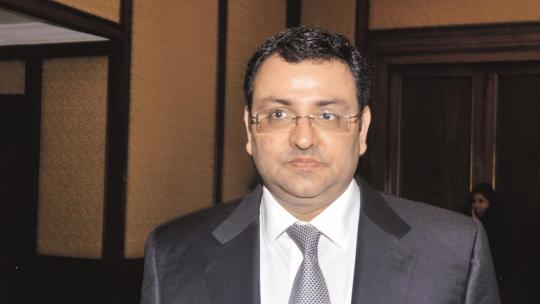
The National Company Law Appellate Tribunal, or NCLAT, has ruled that Cyrus Mistry’s dismissal as executive chairman of Tata Sons Ltd by the board of that company on October 24, 2016 was illegal in a comprehensive, surprising, and sweeping ruling that Tata Sons is almost certain to challenge in the Supreme Court when it reconvenes after the New Year holidays (Wednesday was the court’s last working day this year).In its ruling, NCLAT also deemed the Tata Sons transition from a public company to a private company illegal, making it easier for the Mistry family, the single largest shareholder in the holding company of India’s oldest and best-known conglomerate, to sell part of all of its 18.4% stake should it wish to. And it restored Mistry’s directorships in other companies of the Tata group.The tribunal has stayed the restoration of Mistry’s chairmanship for four weeks, to facilitate an appeal, but not some of the other key decisions.“Today’s judgment is not a personal victory for me, but a victory for the principles of good governance and minority shareholder rights,” Cyrus Mistry said in a statement. Interestingly, Mistry had not specifically asked NCLAT to restore his chairmanship and it isn’t clear whether he will press for it after four weeks (provided the Supreme Court does not stay it while hearing the Tata Sons appeal). “It is a vindication of my stand.”“It is not clear as to how the NCLAT order seeks to over-rule the decisions taken by the shareholders of Tata Sons and listed Tata operating companies at validly constituted shareholder meetings. The NCLAT order appears to even go beyond the specific reliefs sought by the appellant,” Tata Sons group general counsel Shuva Mandal said in a statement. He added that Tata Sons “strongly believes in the strength of its case and will take appropriate legal recourse”.And while the four-week breather doesn’t change anything immediately for current Tata group chairman N Chandrasekaran, the NCLAT order does throw a cloud over his appointment.The NCLAT order said that it does not want to stay its entire judgement, but that in the interests of “smooth functioning” of Tata Sons it would “suspend the part of the judgment so far as it relates to the replacement of the present Executive Chairman and reinstatement of Cyrus Pallonji Mistry as Executive Chairman”.In his statement, Mistry said: “I believe it is now time that all of us work together for sustainable growth and development of the Tata group, an institution that we all cherish.”The legal battle was circuitous. In early 2017, the National Company Law Tribunal dismissed two Mistry family firms’ case (they are the shareholders in Tata Sons) against Tata Sons over Mistry’s dismissal and alleging “oppression” of minority shareholders and “mismanagement” on the grounds that the two did not meet the requirement to file such a case.The firms approached NCLAT which, in September 2017, said it could waive the requirement and that the companies could pursue the case, which then went back to NCLT.In July 2018, NCLT ruled that there was no merit in the Mistry firms’ case. Soon after, an appeal was filed in NCLAT, which finished its hearing in July and reserved its judgement. This was finally delivered on Wednesday.The Mistry firms argued before NCLAT that the agenda of board meetings of Tata Sons had to be cleared ahead of the meetings by the nominee directors of the Tata Trusts (which control Tata Sons) and that an item could be introduced on the agenda only if these nominee directors voted in favour of it. They also pointed to the restriction on sale of shares, and said this affected the rights of minority shareholders (such as themselves).On Wednesday, shares of most listed Tata group companies fell after the order was pronounced. Read the full article
#$0businessaccount#0businesscredit#0businesscreditcard#0businesscreditcardbalancetransfer#0businesscreditcardoffers#0businessfinance#0businesslineofcredit#0businessloans#1august2018businessnews#1augustbusinessnews#1businessday#1businessdayfromnow#1businessdayishowmanyhours#1businessdaymeaning#1businessdayshipping#1businessdayshippingmeans#1businesslink#1businessparkdrive#1businessman#1businessmanfilm#2businessdays#2businessdaysfromfriday#2businessdaysfromtoday#2businessdaysmeans#2businessideas#2businessnews#2businesseson1businesscard#2daybusinessnews#24/7businessnews#3businessactivities
0 notes
Text
HDFC Bank crosses $100 billion in market cap - business news

HDFC Bank Ltd on Thursday crossed the $100 billion market capitalisation, becoming only the third firm in the country to achieve this milestone.The lender is now in the league of Reliance Industries Ltd, which has a market cap of $140.74 billion, and Tata Consultancy Services that has a market cap of $114.60 billion.With this, HDFC Bank now ranks 110th in the world’s most valued companies. According to Bloomberg data, currently, there are 109 companies in the list which have market cap of over $100 billion.Among the most valued banks and financial companies around the world which have a market cap of over $100 billion, HDFC Bank ranks 26th.Investors continued to buy the stock on hope the lender would report consistent earnings performance, steady 20% profit growth, stable asset quality and healthy advances growth.The stock was trading 0.4% higher at ₹1297.50 on the BSE, while Sensex fell 0.09% to 41519.69 points. In the last 12 months, the stock has gained 22%, while the S&P Bankex, the broader gauge of banking stocks, rose nearly 20%.With its capital well above regulatory requirements and higher retail focus, analyst expect HDFC Bank to deliver strong credit growth going forward. Also higher focus on productivity and digitization along with cost rationalisation is likely to result in better profitability growth, analyst added.Among the analysts covering the stock, 50 have a ‘buy’ rating, five have a ‘hold’ rating, while one has a ‘sell’, according to the Bloomberg data.According to Bloomberg Intelligence, HDFC Bank’s increasing concentration of branches in India’s semi-urban and rural areas positions it for higher revenue and profit. About 52% of the bank’s branches were outside major metropolitan and urban centers as of September 2019. Read the full article
#$0businessaccount#/webservices/rss/business_news.xml#0businessbalancetransfer#0businesscredit#0businesscreditcard#0businesscreditcardbalancetransfer#0businesscreditcarduk#0businessfinance#0businesslineofcredit#0businessloans#1august2018businessnews#1augustbusinessnews#1businessday#1businessdayfromnow#1businessdayishowmanyhours#1businessdayshipping#1businessdayshippingmeans#1businesslink#1businessparkdrive#1businessman#1businessmanfilm#2businessdayleadtime#2businessdays#2businessdaysfromfriday#2businessdaysfromtoday#2businessdaysmeans#2businessideas#2businessletter#2businesseson1businesscard#2daybusinessnews
0 notes
Text
How TV Covered the Moment of Impeachment

The impeachment debate on the floor of the House of Representatives might have been historically significant, but it took longer than expected, which meant it got in the way of two network shows that had been promoted heavily in recent weeks.At 8 p.m. on Wednesday, CBS cut away from the proceedings for the season finale of the long-running reality competition show “Survivor.” At the same time, ABC dropped its Washington feed to start airing back-to-back live recreations of the 1970s-vintage Norman Lear sitcoms “Good Times” and “All in the Family.”NBC stuck with the news, rather than its scheduled programming, which was a rerun of “Ellen’s Greatest Night of Giveaways,” starring Ellen DeGeneres. As the anchor Lester Holt led political analysts and correspondents through a discussion, House members were seen milling about in the background. With the tally inching toward the key number, which the network put at 214, NBC included occasional cutaways, with no audio at first, to President Trump speaking at a rally in Battle Creek, Mich.As the vote went through on the first article of impeachment, ABC broke into “Good Times” with a special report led by the anchor George Stephanopoulos. A banner at the top of the screen declared, “President Trump Impeached.”When the moment approached on Fox News, Tucker Carlson, almost midway through hosting his 8 p.m. program, said the president had devoted 45 seconds of his rally speech to the topic of the day. The show then cut to a clip from Battle Creek, with the president saying, “It doesn’t really feel like we’re being impeached,” to cheers.When it was all but official, Mr. Carlson’s reaction was muted. “They have the votes,” he said. “There it is, there it is, right there.”His guests included Jenna Ellis, a lawyer who called the impeachment “fully unconstitutional,” and Representative Devin Nunes of California, who compared it to “a coup attempt.”On MSNBC at the close of the vote on the second article, the anchor Brian Williams discussed with Claire McCaskill, the former Democratic senator of Missouri, the dim likelihood that the Senate would follow the House with a conviction. As the yeas mounted, Mr. Williams said: “This moment, make no mistake, is historic. We’ve crossed the threshold, making for two articles of impeachment.”On CNN, Rick Santorum, a former senator and onetime Republican presidential candidate who is a regular commentator on the channel, was talking about former President Bill Clinton, saying that the House Republicans of 1998 had been “pretty woke” to impeach him, when considering his actions in light of the #MeToo movement.The CBS anchor Norah O’Donnell interrupted “Survivor” with a special report, noting that not one Republican had voted in favor of impeachment and citing the lack of across-the-aisle agreement as evidence of the “split screen” state of America.Mr. Carlson, on Fox News, looked grim toward the end of his hour as a guest, Tom Fitton, the head of the conservative activist group Judicial Watch, was saying, “The president has been terribly abused.”At 9 p.m., CBS returned to “Survivor.” On ABC, the actor Woody Harrelson, with an accent that sounded as if it had originated a thousand miles from Queens, N.Y., was playing Archie Bunker in the “All in the Family” reboot. And on Fox News, Sean Hannity kicked off his highly rated show by calling the impeachment a “repulsive, dangerous political stunt” and a “revolting charade.” Read the full article
#$0businessaccount#/webservices/rss/business_news.xml#0businesscreditcard#0businesscreditcardbalancetransfer#0businesscreditcardoffers#0businesscreditcarduk#0businessfinance#0businesslineofcredit#1august2018businessnews#1businessday#1businessdayfromnow#1businessdayishowmanyhours#1businessdaymeaning#1businessdayshipping#1businessdayshippingmeans#1businesslink#1businessparkdrive#1businessman#1businessmanfilm#2businessdayleadtime#2businessdaysfromfriday#2businessdaysfromtoday#2businessdaysmeaninginhindi#2businessdaysmeans#2businessideas#2businessletter#2businessnews#2businesseson1businesscard#2daybusinessnews#24/7businessnews
0 notes
Text
‘Survivor’ Limps to a Finale After a Difficult Season

Ordinarily, the season finale of “Survivor” is a festive occasion. The contestants gather to reminisce about their time on an island off Fiji, and the winner is announced and awarded $1 million.On Wednesday, it won’t be so simple.As the CBS competition show limped to the end of Season 39, it was still scoring ratings, making an unlikely return to the top 10 as the seventh-most-watched entertainment program on network television. But the announcement of the latest winner caps a season that did not provide the usual escapist thrills. This “Survivor” offended die-hard fans and some former cast members because of how the show handled female contestants’ complaints of inappropriate touching against a male contestant.For the first time, instead of airing live, the reunion special that is broadcast after the winner is announced was taped hours in advance. And as recently as a few days ago, a “Survivor” contestant who raised concerns about inappropriate touching, Kellee Kim, was not sure if she would be allowed to speak freely about her experience during the reunion.The backlash over “Survivor,” which ranks as CBS’s highest-rated entertainment show for adults under 50, took place at a network that has been rocked by a societal reckoning on workplace sexual misconduct. The chief executive, a star anchor and several leading producers at the company have been felled since the start of the #MeToo movement.Debra Katz, a lawyer representing Ms. Kim, contacted CBS late last week to express her concerns. After talks, the network said Ms. Kim would be permitted to speak freely at the reunion special.In a statement this week, CBS also acknowledged that there were “things we could have done differently” this season, adding that “we are determined to do better going forward.” The network also announced a series of “Survivor” production changes “to ensure that the events that occurred this season are not repeated.” In an interview on Wednesday evening, after the reunion taped, Ms. Kim said, “What’s really most important is that ‘Survivor’ and CBS took responsibility and apologized. These changes that I’ve been asking for for many, many months have been put into place, so no one else is going to have to go through something like this.”In an episode that aired last month, which was filmed months ago in Fiji, Ms. Kim said that a fellow contestant, Dan Spilo, had made her uncomfortable by repeatedly touching her without her consent. “Survivor” broadcast much of the footage of the unwanted contact.After Mr. Spilo was issued a warning, the contestants were left to their own devices. Ms. Kim was ultimately voted off the show, prompting a backlash and underscoring an on-air statement she had made earlier: “There are always consequences for standing up.” Mr. Spilo remained on the island for several more episodes.In last week’s episode, Mr. Spilo, a Hollywood talent manager, was removed from the show, as well as from the jury that awards $1 million to the season’s winner. The only explanation for the decision was a title card onscreen saying he had been ejected “after a report of another incident” that occurred off-camera and did not involve a contestant. In a statement to People on Tuesday, Mr. Spilo apologized.Ever since, “Survivor” has been on the receiving end of withering commentary. The New York Times television critic James Poniewozik faulted the show for “the inept, shameful, evasive way it handled sexual misconduct.” A former “Survivor” contestant, Zeke Smith — who applauded the sensitivity that the network and the show had displayed two years ago when he was outed by a fellow contestant as transgender — also criticized the show. “This predator could have and should have been stopped long ago, but those in power made a choice not to stop him,” he tweeted last week. “Shame on you, Survivor.”Ms. Kim’s lawyer, Ms. Katz, said in an interview, “Sexual harassment should never be used for entertainment value. And what happened in this instance was completely unacceptable.”Even with the uproar, ratings have held steady. But many longtime fans have been furious. “There was a lot of shock and horror and numbness,” said Andy Dehnart, the creator of the website Reality Blurred, describing the reaction among “Survivor” superfans. “And there were a lot of questions about how this could happen at all.”For Wednesday’s finale, CBS did not invite Mr. Spilo to the reunion special.As late as of last week, Ms. Katz said, it was unclear what role Ms. Kim would play, as well. “Kellee was concerned that she was not going to be able to speak at the finale,” Ms. Katz added. “And if she was allowed to speak, that it would be too scripted and she would not be able to say the things that were important for her to say.”Ms. Kim underscored the point by saying she was worried about “whether I’d get a free, open venue to speak.”On Dec. 13, with Ms. Kim’s role in the finale still up in the air, Ms. Katz emailed CBS and MGM, the studio that makes the show. “Let me be clear at the onset: Ms. Kim does not seek compensation,” she wrote. “Her motivation in retaining counsel is to begin a productive dialogue about changes production and CBS must make in future seasons of the show.”In the email, Ms. Katz also described the show’s “serious mishandling” of Ms. Kim’s complaint, she said in an interview. It was not long after sending the email that CBS informed Ms. Kim that she would be permitted to speak freely on the final episode.A CBS spokesman said, “There was never any doubt in our mind that she would be part of it and be able to speak freely about her experience.” The spokesman added that her discussion with Jeff Probst, the show’s longtime host, during the reunion special would be “broadcast unedited.” On Tuesday, CBS detailed its planned improvements for future seasons of “Survivor.” One rule will say that unwanted physical contact or sexual harassment will not be allowed. The production will also assign an executive to the set so that contestants can express their concerns confidentially.Ms. Kim said she was heartened by the response and wanted the network to see it through. “I hope that this has been a true learning lesson and things are different going forward, but only time will tell,” she said. Read the full article
#$0businessaccount#/webservices/rss/business_news.xml#0businessbalancetransfer#0businesscreditcard#0businesscreditcardbalancetransfer#0businesscreditcardoffers#0businesscreditcarduk#0businessfinance#0businesslineofcredit#0businessloans#1august2018businessnews#1augustbusinessnews#1businessday#1businessdayfromnow#1businessdayishowmanyhours#1businessdaymeaning#1businessdayshipping#1businessdayshippingmeans#1businesslink#1businessman#1businessmanfilm#2businessdayleadtime#2businessdays#2businessdaysfromfriday#2businessdaysfromtoday#2businessdaysmeaninginhindi#2businessideas#2businessletter#2businessnews#2businesseson1businesscard
0 notes
Text
Trump Called Boeing C.E.O. About Potential Shutdown of 737 Max

Boeing began work on the new model of its 737 under pressure in 2011 as the company sought to fend off competition from its European rival, Airbus. But after the two crashes, prosecutors, regulators and two congressional committees are investigating whether Boeing overlooked safety risks and played down the need for pilot training in its effort to design, produce and certify the plane as quickly as possible.As the public face of the company, Mr. Muilenburg has been under intense pressure over the last year from lawmakers, Boeing board members and the families of the crash victims. In October, the board stripped Mr. Muilenburg of his title as its chairman but allowed him to continue as chief executive. He faced aggressive questioning from lawmakers at hearings later that month, where relatives of the victims also called for him to resign.The call on Sunday was not his first conversation with the president. Before the Max was grounded, Mr. Muilenburg and Mr. Trump negotiated about Boeing’s contract to build Air Force One planes at the president’s Mar-a-Lago resort in Florida. Mr. Trump joined Mr. Muilenburg for a tour of Boeing’s 787 Dreamliner factory in North Charleston, S.C.Then, two days after the second accident, in Ethiopia on March 10, Mr. Muilenburg called Mr. Trump and insisted the Max was safe. The United States grounded the plane the next day, however, after most other regulators around the world had already done so. Mr. Trump has made the promise of a revival for America’s manufacturers a tenet of his presidency. During the 2016 campaign, he vowed to bring back industrial jobs, helping him carry states like Michigan that had voted for Barack Obama in 2012.And he has followed the Max crisis closely. “If I were Boeing, I would FIX the Boeing 737 MAX, add some additional great features, & REBRAND the plane with a new name,” he wrote on Twitter in April. “No product has suffered like this one. But again, what the hell do I know?”David Yaffe-Bellany contributed reporting. Read the full article
#$0businessaccount#0businessbalancetransfer#0businesscredit#0businesscreditcard#0businesscreditcardbalancetransfer#0businesscreditcardoffers#0businesscreditcarduk#0businessfinance#0businesslineofcredit#0businessloans#1august2018businessnews#1augustbusinessnews#1businessday#1businessdayishowmanyhours#1businessdaymeaning#1businessdayshipping#1businessdayshippingmeans#1businesslink#1businessparkdrive#1businessman#1businessmanfilm#2businessdayleadtime#2businessdays#2businessdaysfromfriday#2businessdaysfromtoday#2businessdaysmeaninginhindi#2businessdaysmeans#2businessideas#2businessletter#2businesseson1businesscard
0 notes
Text
Earning Income on the Side Is a Large and Growing Slice of American Life
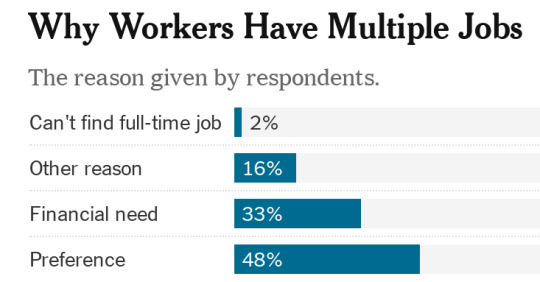
The reasons people give for working multiple jobs are strongly related to how they evaluate their employment situation. Those who say they work multiple jobs for some positive reason — they want to earn extra money; they enjoy, love or are interested in what they do; or they see it as a hobby — are generally upbeat about their work. Sixty-four percent rate their job situation a 7 or above, whereas those who work multiple jobs out of necessity view their work less favorably (41 percent rate their job a 7 or above).Over all, very few — just 2 percent — say they work multiple jobs because they can’t find a full-time job. These answers shed light on why people work multiple jobs, but it remains unclear why self-employment relationships have expanded over the last four decades. Especially in recent years, technology has played a role, greatly helping customers match up with contractors and making it easier to find an interesting job that leads to extra income.Yet those technologies are available in other countries, which have not experienced the same trend. In France and Canada, the proportion of people filing government pension taxes indicating that they receive self-employment income is less than half that of the United States — around 6 percent. In Canada, the rate has not meaningfully increased since 2009. In France, the share of people filing self-employment taxes did not change from 1994 to 2009 and seems to have gone up slightly since then (to 6 percent from 5 percent) in response to changes made by the French government to streamline tax filing for the self-employed.Another possibility is that U.S. workers are finding it harder to make ends meet in the face of growing income inequality and rising costs for health care, education and housing. In Canada and France, health care and postsecondary education are both more affordable and financed by the public sector.Whatever the reasons for the increase, workers rather than employers seem to be driving the trend in self-employment, since the increase comes from people combining self-employment with traditional employee relationships. Some politicians and places, like California, have sought to curb self-employment, on the theory that employers have created the gig economy in an effort to evade their tax and regulatory obligations. The reality is more complicated.Jonathan Rothwell is the author of “A Republic of Equals: A Manifesto for a Just Society,” recently published by Princeton University Press. He is the Principal Economist at Gallup, a nonresident senior fellow at the Brookings Institution and a visiting scholar at the George Washington University Institute of Public Policy. You can follow him on Twitter at @jtrothwell, and listen to his podcast, “Out of the Echo Chamber.”The 2019 Gallup Great Jobs Survey was funded by The Lumina Foundation, the Gates Foundation and Omidyar Network. Data are available on the Gallup website. Results are based on mail surveys conducted Feb. 8 to April 1, 2019, with a random sample of 9,671 adults 18 and older in all 50 states and the District of Columbia. Read the full article
#$0businessaccount#/webservices/rss/business_news.xml#0businessbalancetransfer#0businesscredit#0businesscreditcard#0businesscreditcardbalancetransfer#0businesscreditcardoffers#0businesscreditcarduk#0businessfinance#0businesslineofcredit#0businessloans#1august2018businessnews#1businessday#1businessdayfromnow#1businessdayishowmanyhours#1businessdaymeaning#1businessdayshipping#1businessdayshippingmeans#1businesslink#1businessparkdrive#1businessman#1businessmanfilm#2businessdayleadtime#2businessdaysfromfriday#2businessdaysfromtoday#2businessdaysmeans#2businessideas#2businessletter#2businessnews#2businesseson1businesscard
0 notes
Text
Former top BOJ economist warns about Japan’s recession - business news
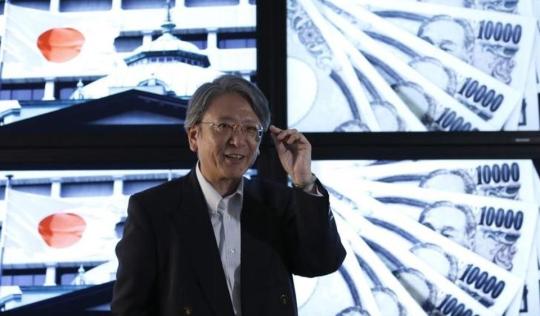
Japan’s economy may already be in mild recession and will rebound only modestly next year, forcing the central bank to maintain its huge stimulus despite the rising costs, former Bank of Japan executive Hideo Hayakawa said on Wednesday.Given its dwindling ammunition, the BOJ is likely to hold off on expanding stimulus unless an external or market shock deals a more severe blow to the economy, said Hayakawa, who retains close contact with incumbent central bank policymakers.Prolonged economic stagnation, however, will also prevent the central bank from normalising crisis-mode policies any time soon, he said.“With inflation very distant from the BOJ’s 2% target, the BOJ won’t be able to dial back stimulus any time soon,” Hayakawa said.“The best it can probably do is to ‘stealth’ normalise,” or to continue quietly tapering asset purchases, he told Reuters.The BOJ is set to keep policy steady on Thursday, as signs of progress in U.S.-China trade talks take some pressure off the central bank to tap its depleted policy tool-kit.Japan’s economy grew by an annualised 1.8% in the third quarter, marking the fourth straight quarter of expansion, gross domestic product (GDP) data showed.But the strong GDP figure contradicts other data painting a weaker picture of the economy, such as slumping exports and output blamed on slow global demand, said Hayakawa, now a senior economist at private think tank Fujitsu Research Institute.While Japan’s economy is expected to rebound next year, any pick-up will be modest as lingering overseas uncertainties and slow wage growth weigh on exports and consumption, he said.Capital expenditure is also unlikely to strengthen much as many firms already spent years ramping up spending, he added.“It’s quite clear Japan is already in mild recession,” said Hayakawa, a former top BOJ economist. “The economy will rebound sometime in the first half of next year, but in such a small way that very few in the public would feel it.”While the United States and China move toward de-escalating their bitter trade war, slumping global manufacturing activity has already taken a toll on Japan’s export-reliant economy, the world’s third largest.Factory output posted its largest fall in two years in October and big manufacturers’ business sentiment sank to a near seven-year low in the fourth quarter. Exports also slipped for a 12th straight month in November.Many analysts expect the economy to contract in the current quarter as a sales tax hike in October cools consumption. Read the full article
#$0businessaccount#0businessbalancetransfer#0businesscredit#0businesscreditcard#0businesscreditcardbalancetransfer#0businesscreditcardoffers#0businesscreditcarduk#0businessfinance#0businesslineofcredit#0businessloans#1augustbusinessnews#1businessday#1businessdayishowmanyhours#1businessdaymeaning#1businessdayshipping#1businesslink#1businessparkdrive#1businessman#1businessmanfilm#2businessdayleadtime#2businessdaysfromtoday#2businessdaysmeaninginhindi#2businessdaysmeans#2businessideas#2businessletter#2businesseson1businesscard#2daybusinessnews#3businessdays#3businessdaysfromtoday#3businessdaysmeans
0 notes
Text
Our Lives in the Time of Extremely Fancy Axes

Throwers are another circle in the Venn diagram of modern ax consumers, joining collectors and restorers, survivalists and bushcrafters, aesthetes, and that circle of fancy cabin owners, weekend warriors and suburban pioneers who aspire to chop firewood not because they’ll freeze to death if they don’t, but because they find it meditative, or because it offers a sense of physical purpose in a very digital world, or because controlling the supply chain is so hot right now. These audiences are converging, boosting business for the relatively few legacy American ax manufacturers that have survived into the 21st century, and fostering a cottage industry of new ax artisans across the country.“We live in a society where everything is bought to be thrown away — nothing really lasts,” said Thomas Holloway, 36, who started Anchor Axe Co. in Kansas City, Mo., in 2016. “I think people gravitate toward axes because they’re something they can pass on to their kids that’s never going to go out of style.” His vintage refurbished camp hatchets ($100 to $150) sell at boutiques across the country, including Hamilton & Adams in Kingston, N.Y. (Leading up to this Christmas, all the ones in Kingston are sold out.)In 2015, Brant & Cochran in Portland, Me., began resurrecting extinct heritage ax designs native to the state, like the Allagash Cruiser Maine wedge, with a 28-inch hickory handle and handmade leather sheath ($250). In 2017, the company crowdsourced more than $26,000 via Indiegogo to buy upgraded equipment, and in 2019, the company said, it doubled production and sales from the previous year. “I’m 58 years old,” said Mark Ferguson, a founder. His generation, he said, created big-box stores like Home Depot “and has buried the world in plastic junk. But people are thinking a lot harder about their purchases now. When people spend $250 on a camp ax, they want to know where that money’s going, to see the process, to know the maker — not some big faceless corporation.” Read the full article
#$0businessaccount#/webservices/rss/business_news.xml#0businesscredit#0businesscreditcard#0businesscreditcardbalancetransfer#0businesscreditcardoffers#0businesscreditcarduk#0businessfinance#0businesslineofcredit#0businessloans#1august2018businessnews#1augustbusinessnews#1businessday#1businessdayfromnow#1businessdayishowmanyhours#1businessdaymeaning#1businessdayshipping#1businessdayshippingmeans#1businesslink#1businessparkdrive#1businessman#1businessmanfilm#2businessdayleadtime#2businessdays#2businessdaysfromtoday#2businessdaysmeaninginhindi#2businessdaysmeans#2businessideas#2businessletter#2businessnews
0 notes
Text
H&M’s Different Kind of Click Bait
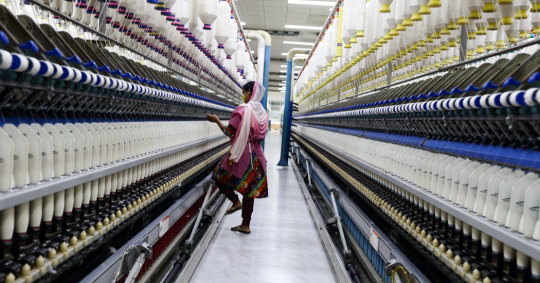
The H&M group sells an estimated three billion articles of clothing per year. Its revenue makes it among the top three fashion retailers in the world.Clothing for its brands, including H&M, Arket and & Other Stories, is manufactured in 40 countries, the company said; in Bangladesh alone, it sources from 275 factories that employ half a million workers. As it sprawls ever further around the globe, hopping from trend to trend, how can H&M keep track of how the skirts, pants and sweaters it sells are made? How, for example, can it monitor whether, in faraway countries, workers are being paid less than they need to live, forced to work hours of overtime in precarious conditions?This spring, after almost three years of preparation and coordination by 40 team members from Hong Kong to Stockholm, and at a time when scrutiny of the global fashion industry and its shadowy supply chain is greater than ever, H&M introduced an effort to do exactly that — and to make it public for shoppers.Now, the company says, it can be held accountable for the origins of its products. If consumers care to look.
They Made Your Leggings
Browsing the H&M website this month, you may find yourself taken with a ladies’ amber sweater with “Hiver” written on the front, or else a pair of pink children’s leggings, with smiling bunny faces and ears that stick out from the knees for $4.99.Click on the “product sustainability” tab on the page, and you will learn they were made in Bangladesh by some of the 13,000 workers at the Jinnat Apparels & Fashion plant in Gazipur, a dense manufacturing neighborhood near Dhaka.This is part of the company’s new “consumer-facing transparency layer.” H&M shoppers can now find out not only the country where clothing was manufactured, but also details on materials and recycling, the name of the supplier or authorized subcontractor where a garment was made; the factory address; and the number of workers employed there. Customers shopping in physical stores can also have access to this information by using the H&M app to scan the product price tag.There are limits to how much information you’ll get, of course. The sustainability tab won’t tell you that Jinnat sprawls over seven floors, each the size of a football field, or that employees perch in front of whirring sewing machines making white cotton T-shirts, monitoring 337 high-tech embroidery appliances and snipping at stray threads. And you won’t find out that this single company makes 400,000 pieces (roughly 110 tons) of clothing per day, or around 10 to 12 million units per month, up to a quarter of which will be bound for H&M. Still, it is nevertheless the first effort of its kind by a retailer of this scale.H&M created the system by building a bridge between its supplier and production databases and then linking it to its retail interfaces. (The company declined to say what the project had cost.) Pascal Brun, the head of sustainability for the H&M brand, said the new public transparency layer showed that the company had nothing to hide regarding labor or environmental practices, or how H&M products were made.“It is not going to change the world,” he said. “But it is about building a foundation for real change, given we can’t build this industry from the ground up all over again.”
Seeing Through Transparency
“Transparency has become the key driver of change in the fashion industry, which used to be about as untransparent an industry as it could possibly be,” said David Savman, the head of production for the H&M group, from a factory floor in Dhaka. Tanned and golden haired, the Swede filed between rows of workers and inspected sequined T-shirts, asking line managers about different cotton hybrids and admiring fire doors.Change came crashing down on the industry with the Rana Plaza disaster in Bangladesh in 2013, a factory collapse that led to the death of more than 1,000 workers, with scores more disfigured or disabled for life. In the wake of the catastrophe, several Western retailers found they had sold clothes sourced from the factory, or had little to no idea where the clothes they sold were sourced from. All have since come under increasing public pressure to investigate, police and invest in exactly where and how their products were made. There is also pressure for them to be as transparent about their findings as possible (though some have been far more forthcoming than others about taking action).The creation in Bangladesh in 2013 of two five-year fire and safety monitoring agreements between retailers and unions made significant improvements and reforms. The Accord on Fire and Building Safety, which is legally binding, was signed by more than 200 retailers including H&M and Inditex (neither of which had any ties to Rana Plaza, but plenty of other alleged supply chain abuses). The other agreement is the nonbinding Alliance for Bangladesh Worker Safety, which was signed by Walmart, Gap and Target. Both have spurred improved working conditions in many Bangladeshi factories, and calls for other countries to adopt similar standards.These agreements, now up for renewal, have sidelined some of the country’s most dangerous factories, and cut their ties to most Western retailers, though not all. A Wall Street Journal investigation in October found that Amazon continued to sell clothes from Bangladeshi factories that other retailers had blacklisted because of their inability to pass safety requirements. Pressure from consumers has also prompted brands like H&M to proactively support local suppliers who create safe and profitable businesses in places like Bangladesh.“We choose not to work with a lot of suppliers that other rivals work with so they can save on costs,” said Karl-Johan Persson this fall. (In 2018 six suppliers in Bangladesh were phased out by H&M because of their poor sustainability performance.) Mr. Persson, the billionaire chief executive of H&M, sat in the “hygge”-style library for the company’s army of young designers in Stockholm as he defended his family company’s business model and its contributions. He declined to specify how much H&M spent annually on transparency efforts, other than to say the investment had continually hurt short-term profit in order to ensure the long-term survival and growth of the company. His argument is that by working in low-cost areas, H&M is creating jobs and investing in the economy; by making its partnerships public, it is accepting its own liability.“But often,” Mr. Persson said, “the focus ends up on what we don’t do.”The new “transparency layer” project has been cautiously applauded by some human rights and fashion advocacy groups and union leaders. But many have also said that H&M’s efforts do not go far enough, questioning whether improvements like this are worthwhile if they merely prolong the existence of a system where profits and shareholder interests are continually placed ahead of employees, suppliers and the environment.Currently, customers do not have access to information on workers’ wages at individual factories, or local minimum fair living wage commitments and calculation methodology. Nor does the transparency layer offer a breakdown of the pricing structure that could specify how labor costs are calculated.“Transparency is primarily a means to an end, and mere information about where a garment is produced does not automatically guarantee meaningful changes in factory labor conditions,” said Aruna Kashyap, senior counsel for the women’s rights division at Human Rights Watch, which is part of a coalition that started the Transparency Pledge (of which H&M is a signatory).“H&M is among the leaders on supplier transparency, and other companies should follow this practice,” Ms. Kashyap said. “But that doesn’t mean that H&M and other companies that are transparent have fixed an industry model that is replete with problems.”
The Model and the Problems
Even after the Rana Plaza tragedy, the global business model for producing low-cost clothing remains the same. Most brands don’t own their own production facilities, but instead contract with independent factories to make their garments. Generally, in these factories, located in mostly developing economies, very low wages are paid to workers using manufacturing processes that are geared toward expediency rather than the environment.Subcontraction or homeworking remain common, and make it even harder to track where clothes come from.The industry is operating at an almighty scale. In total, across the fashion industry, 80 billion garments are produced each year, according to Greenpeace, with consumer demand and appetite for trend-fueled fashion only growing stronger, in part thanks to a digital culture powered by social media and the wallets of a young emerging global middle class. The worldwide apparel and footwear market’s expected growth, pegged at roughly 5 percent through 2030 by Euromonitor analysts, would risk “exerting an unprecedented strain on planetary resources” by raising annual production of fashion to more than 100 million tons, according to a Euromonitor report.The pressure to meet those demands, and the demand for ever-cheaper labor, are at odds with the move toward transparency and tightly managed supply chains. Many major brands in Europe and North America continue to have limited information about the factories and workers producing their wares. Inspections are usually delegated to third-party auditors, which have proven to be far from foolproof and at the mercy of the often uneven tides of developing nations.Revelations of egregious failures within the garment industry still emerge on a regular basis. A Guardian story in October reported that the active wear company Lululemon had been sourcing clothing from a factory where Bangladeshi female factory workers said they were assaulted. This month, in Delhi, India, a fire broke out in a factory that made school bags and killed 43 workers, including children, who were asleep on the floors inside.Last year, Transparentem, a nonprofit focused on investigating human and environmental abuses in the apparel industry, published a report about abusive conditions and forced labor at a set of Malaysian apparel factories that made wares for brands in North America and Europe such as Primark, Asics, Nike and Under Armour.
Servitude and Lack of a Living Wage
According to the Transparentem report, many workers, often migrants from Bangladesh and Nepal, said that they paid steep recruitment fees to acquire jobs. These could take years to pay back, resulting in “debt bondage,” a common form of modern slavery that occurs when a person is forced to work to pay off debts for little or no pay.Factories limited employees’ movements by withholding their passports; it wasn’t unusual for them to live jammed together in squalid conditions. Many also had to pay a government levy on foreign workers out of their own paychecks (a practice that was legal when Transparentem interviewed workers in 2016 and 2017).“The physical distance, cultural distance, and often time zone difference have all meant that there are inherent challenges in understanding the labor conditions in any manufacturer supply chain,” said Benjamin Skinner, the founder and president of Transparentem.Brands have largely trusted suppliers to follow certain rules with employees and the environment and then verified that those policies were being followed, Mr. Skinner said. But based on his organization’s work, he added, “the ‘verify’ part can be pretty weak.” Because auditors would alert factory owners to their visits, or only interview workers in the presence of their bosses, it created an environment where noncompliance was easy to hide.This gap between intent and reality also emerged in a May report from University of Sheffield researchers in Britain on apparel companies not delivering on promises to pay workers a living wage.Generally set by governments (sometimes with input from foreign and local businesses, unions and NGOs), living wages can differ significantly between countries, with benchmarks sometimes geared to maintaining a country’s competitiveness as a low-cost manufacturing destination rather than the needs of workers. The wages can also be significantly less — sometimes even falling below the poverty line — than the living wage as defined by outside groups, which broadly incorporates food, housing, medical care, clothing and transportation.Many companies, including Adidas and Puma, referred to components of a living wage in their supplier codes of conduct, the researchers said, but the wording around requirements was “very vague,” leaving fulfillment an option and the legal minimum wage the only requirement.On top of all this, the researchers noted that companies relied heavily on outside auditors to ensure codes of conduct were being followed, running into the same issues outlined by Mr. Skinner. Many of these firms are “beholden by financial conflict of interest since they are hired by companies who could decide not to continue to hire them if they identify too many problems,” they wrote. Often, they visited only top suppliers, leaving out the many subcontractors where abuses can be the worst.
Who Polices the Supply Chain?
After Transparentem revealed the Malaysian abuses to 23 companies with direct or indirect buying relationships with the factories, most said that they would take action.Buyers and suppliers were able to negotiate the return of passports and secure the reimbursement of recruitment fees for workers at several facilities. (By November 2018, the total amount of fees paid and scheduled to be paid exceeded $1.4 million.)Still, under the current system, the industry status quo means major garment manufacturers are mopping up mistakes, rather than not making them at all. This is the problem H&M is trying to solve.Mr. Savman of H&M said that because H&M did not own factories, all sustainability efforts and investments like a Dhaka training center ultimately focused on supporting and promoting processes and mechanisms between suppliers, unions and workers that made them self-sufficient when it came to problem solving.A self-reporting system called the Supplier Partnership Impact Program allowed H&M to see issues and regulate what sort of monitoring was needed and where. National Monitoring Committees — round table discussions between H&M employees, union representatives and factory owners — attempted to resolve pay disputes and abuse allegations at factory level.Alongside regular auditing by independent groups, Mr. Savman said, H&M still frequently sent its own employees to monitor factories, sometimes by prearrangement but often unannounced. His colleague Payal Jain, the sustainability manager for H&M’s global supply chain who started her career as a factory worker in India, said that H&M visited its factories several times per week, and 2,500 audits were made in the country per year.That may sound like a lot, but it is an average of 10 per factory — in 365 days. Or less than once per month. The company was also criticized by the Clean Clothes campaign last year, which said H&M had not met a 2013 commitment made to ensure suppliers would pay a living wage to 850,000 textile workers by 2018. (H&M said it had reached at least 600 factories and 930,000 garment workers with its fair living wage strategy, and did not share the Clean Clothes Campaign’s view of how to create change in the textile industry.)Additionally, some factory owners say that despite support from H&M’s sustainability teams, they experience pressure from the company or from production teams who still want more product at a cheaper price — or they threaten to pull their business and go to even less expensive hubs, like Ethiopia. Ms. Jain said cost of labor was not a negotiable part of a supplier contract. But if suppliers are paid less, or overtime is required to complete a contract, the likelihood is that shortfall will get passed down the chain.“Brands like H&M offer training, help union members establish themselves in my factory and guide us on investing in the business, which are all very good and important things,” said Lutful Matin, the manager of Natural Denims, another factory near Dhaka. It employs 6,900 workers to make garments for H&M, Zara, Mango and Esprit. “But then their buying teams still drive down order values and I feel such pressure,” Mr. Matin said.He had proudly shown off the conditions and quality of his products. But, he said, while “I know I’ve invested more in my factory than competitors, they still get orders. There are always new certificates and alliances that need to be passed. Globally the trading market is getting tougher. Sometimes I don’t know how easy it will be to survive.”
The Shopper’s Role
While the work it does is recognized by its recognition in projects like Fashion Revolution’s Transparency Index, H&M believes the best way to get consumers thinking about who made their clothes is to talk to them close to the point of sale.“Consumers have a lack of trust and say they don’t always know how to make the right choices,” said Anna Gedda, the head of sustainability for the H&M group. She added that it was “a constant struggle” to work out how much information a customer may want versus what might make them switch off or walk away from a sale.From Dhaka, Mr. Savman was more forthright. “We are still at the stage where if you put two T-shirts, one cotton and one recycled cotton, which is 30 percent more expensive, the majority of consumers will still take the first option,” he said. “We put a lot of information out there, like the product transparency layer. But how much do customers engage with it? Not a lot — yet.”Nearby, the managers and owners were keen to show off the scope and quality of their Jinnat complex, from their high-quality Italian knitting machines and subsidized food store and medical facilities to the anonymous complaint boxes on every floor and payment system so that workers can be compensated directly and efficiently. As tens of thousands of workers streamed back into the steamy streets for their lunch break, Abdul Wahed, the chairman, looked on.“We are extremely proud of the factory here, and the work we have done,” he said. “People can know when and where we make their clothes.” The onus is on them to click. Read the full article
#$0businessaccount#/webservices/rss/business_news.xml#0businessbalancetransfer#0businesscredit#0businesscreditcard#0businesscreditcardbalancetransfer#0businesscreditcardoffers#0businesscreditcarduk#0businessfinance#0businesslineofcredit#0businessloans#1august2018businessnews#1augustbusinessnews#1businessday#1businessdayfromnow#1businessdayishowmanyhours#1businessdaymeaning#1businessdayshipping#1businessdayshippingmeans#1businesslink#1businessparkdrive#1businessman#1businessmanfilm#2businessdayleadtime#2businessdays#2businessdaysfromfriday#2businessdaysfromtoday#2businessdaysmeaninginhindi#2businessdaysmeans#2businessideas
0 notes
Text
Bank of Baroda raises Rs 1,747 cr by issuing Basel III compliant bonds - business news

Bank of Baroda on Wednesday said it has raised Rs 1,747 crore by issuing Basel III compliant bonds on a private placement basis.The bank has issued and allotted Basel III compliant additional tier I bonds, Bank of Baroda said in a regulatory filing. A total of 17,470 ‘8.99 per cent unsecured rated listed subordinated fully paid up additional tier I Basel III compliant non-convertible perpetual taxable bonds, Series XI’ were allotted to 18 allottees on December 18, 2019, the state-run bank said.To comply with Basel III capital regulations, banks need to improve and strengthen their capital planning processes. These norms are being implemented to mitigate concerns on potential stresses on asset quality and consequential impact on performance and profitability of banks. Indian banking system has been implementing Basel III standards in phases since April 1, 2013 and is expected to fully implement these norms by March 2020. Shares of Bank of Baroda traded down 3.42 per cent at Rs 98.75 on the BSE. Read the full article
#$0businessaccount#/webservices/rss/business_news.xml#0businessbalancetransfer#0businesscredit#0businesscreditcard#0businesscreditcardbalancetransfer#0businesscreditcardoffers#0businesscreditcarduk#0businessfinance#0businesslineofcredit#0businessloans#1august2018businessnews#1augustbusinessnews#1businessday#1businessdayfromnow#1businessdayishowmanyhours#1businessdaymeaning#1businessdayshipping#1businessdayshippingmeans#1businesslink#1businessparkdrive#1businessman#1businessmanfilm#2businessdayleadtime#2businessdays#2businessdaysfromfriday#2businessdaysfromtoday#2businessdaysmeaninginhindi#2businessdaysmeans#2businessideas
0 notes
Text
Tribunal's Orders Goes Beyond Relief Sought By Appellant, Says Tata Sons
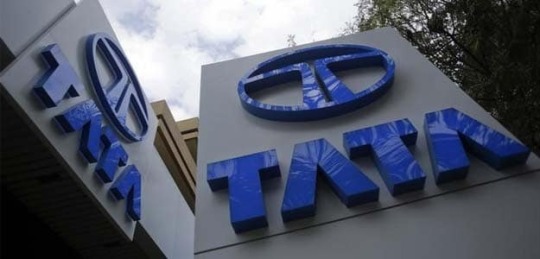
Reacting to the National Company Law Appellate Tribunal order, reinstating former Executive Chairman Cyrus Mistry, Tata Sons in a statement said the NCLAT's order goes beyond the specific reliefs sought by the appellant."The NCLAT order appears to even go beyond the specific reliefs sought by the Appellant," Tata Sons said in a statement.Cyrus Mistry was restored as the executive chairman of Tata Sons today by the National Company Law Appellate Tribunal (NCLAT), three years after his dramatic sacking at a board meeting following which Ratan Tata took over as interim chairman."Tata Sons strongly believes in the strength of its case and will take appropriate legal recourse," Tata Sons said in a statement after the court's ruling.Tata Sons has four weeks to appeal the order given by the NCLAT, news agency Reuters reported quoting a lawyer involved in the case.Tata Sons also said: "it is not clear as to how the NCLAT Order seeks to over-rule the decisions taken by shareholders of Tata Sons and listed Tata operating companies at validly constituted shareholder meetings."After the tribunal's order, Cyrus Mistry in a statement had said, "For the Tata Group to prosper as an institution, it is important that the management of individual companies, their Boards, the management of Tata Sons, the Board of Tata Sons and the shareholders of Tata Sons, all work harmoniously within a robust governance framework, that in substance and form, protects the rights of all stakeholders." Read the full article
#/webservices/rss/business_news.xml#0businessbalancetransfer#0businesscredit#0businesscreditcard#0businesscreditcardbalancetransfer#0businesscreditcardoffers#0businesscreditcarduk#0businessfinance#0businesslineofcredit#0businessloans#1august2018businessnews#1augustbusinessnews#1businessday#1businessdayfromnow#1businessdaymeaning#1businessdayshipping#1businessdayshippingmeans#1businesslink#1businessparkdrive#1businessman#1businessmanfilm#2businessdayleadtime#2businessdays#2businessdaysfromfriday#2businessdaysfromtoday#2businessdaysmeaninginhindi#2businessdaysmeans#2businessideas#2businessletter#2businessnews
0 notes
Text
Sycophants and ‘General Weirdness’ at SoftBank Vision Fund
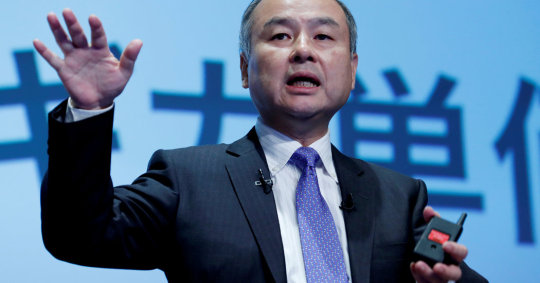
(Want this by email? Sign up here.)
A toxic culture at SoftBank’s Vision Fund
Masa Son, the Japanese billionaire, instilled a hard-driving work ethos at his venture capital firm, SoftBank Vision Fund: Go big or go home. But the fund has also been described as an environment of sycophancy and harassment, reports Bloomberg Businessweek. The workplace is “steeped in vintage Wall Street macho belligerence,” according to Bloomberg: “Current and former employees of the fund and SoftBank describe an environment of sycophancy toward Son, internecine political rivalries, harassment, compliance issues and an abnormally high tolerance for risk — all wrapped in a casing of general weirdness.” The fund is known for making outsize bets on tech start-ups, which helped it take in more than $21.2 billion on investments in 2017. But its practices have raised skepticism from outsiders. “The strategy that Son and his all-male phalanx of managing partners followed seemed less about any specific technology than about placing large bets on the buzziest start-ups,” Bloomberg writes. The plan seemed to be working, until the fund’s most prominent investment, WeWork, spectacularly fumbled its I.P.O.
In China, a widening web catches people’s data
The Chinese government, already known for its vast surveillance systems, is stepping up its ability to spy on virtually everyone in the country, the NYT’s Paul Mozur and Aaron Krolik report. The Chinese authorities are melding old and new technologies — including phone scanners, facial recognition cameras, and face and fingerprint databases — into tools for authoritarian control, according to private and police databases. The tools can help identify people walking down the street, find out whom they are meeting, and determine who does and doesn’t belong to the Communist Party. In the United States and other countries, some of these techniques are used to track terrorists and drug lords. The rollout in China has come at the expense of personal privacy. The authorities stored the personal data of millions of people on servers that are unprotected by even basic security measures, The Times found. Leaks of online data is a major problem. Signs of a backlash are brewing: In Shanghai, residents pushed back against a police plan to install facial recognition cameras in a building complex, and in Zhejiang Province a professor sued a zoo after it required mandatory facial recognition scans for its members to get access, Mr. Mozur and Mr. Krolik write.
Fiat Chrysler and Peugeot forge an auto giant
Fiat Chrysler and PSA, the maker of Peugeot, agreed today on a merger in a deal that would create the world’s fourth-biggest auto manufacturer, write the NYT’s Jack Ewing and Liz Alderman. The carmakers signed a formal agreement for a 50-50 merger, which had been announced in October. The combined company will be led by PSA’s C.E.O., Carlos Tavares. The Fiat chairman, John Elkann, will hold the same role at the new company. The new entity would surpass Volkswagen as the market leader in Europe, with more than 400,000 employees and worldwide sales of 8.7 million vehicles. Integrating the companies could take many months, including the process of choosing a name for the new company. Analysts regard the union as an imperfect match: “They share some weaknesses, including a dependence on the declining European market and the lack of a strong presence in China,” the reporters write.
Russian tech firms are a target for state-sponsored trouble
Russia’s tech sector has a wealth of talent but is often hurt by the country’s stumbling attempts to market its developers’ skills, the NYT’s Andrew Higgins writes. The $670 million sale this year of Nginx, a Russian company that developed web server software used by more than a third of the world’s websites, to F5 Networks of Seattle, sent a clear message: Russian programmers can create valuable products. But that was before Russia’s capricious and aggressive law-enforcement system got involved. Police officers with automatic weapons last week searched the homes of the company’s founders, Igor Sysoyev and Maxim Konovalov, and their company’s Moscow office, and also took the two men in for questioning. The case, essentially an intellectual property matter that the authorities escalated to a criminal case, has turned one of Russia’s biggest IT success stories into an example of why the country has so much trouble developing its economy beyond natural resource extraction, Mr. Higgins writes.
PG&E clears a $1.7 billion bankruptcy hurdle
Pacific Gas & Electric reached a $1.7 billion settlement with California regulators for deadly wildfires started by its equipment in 2017 and 2018, the NYT’s Lauren Hepler and Ivan Penn write. The deal resolves one of several obstacles that the company faces in its bankruptcy petition. The utility is trying to win approval in U.S. Bankruptcy Court for a separate multibillion-dollar settlement. Two weeks ago, the utility appeared to have cleared a big hurdle by reaching a $13.5 billion settlement with wildfire victims. But Gov. Gavin Newsom objected to the company’s proposed restructuring last week, as hedge funds vying for control of the utility seek to change the settlement with victims. The results of those battles will shape how fire victims are compensated for lost homes and loved ones. It will also determine how California fixes and updates its strained energy system.
California law creates confusion for gig workers
Many independent contractors in California are caught in uncertainty by a law that focuses on gig-economy workers. The legislation takes effect on Jan. 1, but many employers and workers say it is unclear how it will affect them, write the WSJ’s Christine Mai-Duc and Lauren Weber. • Many workers will be reclassified as employees rather than independent contractors under the law, known as AB5, “giving them access to minimum wage and overtime laws, workers’ compensation coverage and paid sick days” the reporters write. But confusion over who will be affected is driving some to take precautionary measures, while others hope a court will clarify the matter soon. Other states are watching closely: “How the outstanding questions about AB5 get resolved in the coming months could have national implications, as lawmakers in other states including New York and New Jersey consider similar legislation,” the reporters write. “We are going into uncharted waters,” one small-business owner said.
Revolving door
Bed Bath & Beyond’s new C.E.O., Mark Tritton, is ousting six senior executives. Citadel, the alternative asset manager, named Tripp Kyle its chief corporate affairs and communications officer.
The speed read
Deals • Carlyle and other investors are reportedly taking a stake in American Express Global Business Travel, in a deal that values the company at $5 billion, including debt. (WSJ) • JAB Holdings is combining the coffee brands Jacobs Douwe Egberts and Peet’s Coffee with the aim of raising as much as $3.3 billion from a European listing. (FT) • Daimler is seeking to buy a majority stake in its Chinese operations at a time of heightened tension between Berlin and Beijing. (Reuters) • Beike Zhaofang, an online property brokerage platform, is considering an I.P.O. that could raise at least $1 billion. (Bloomberg) • The E.U. has opened an investigation into the merger of two major South Korean shipbuilders. (FT) Politics and policy • Senator Elizabeth Warren is escalating her attacks on private equity. The industry is ready to fight back. (WaPo) • The E.U. outlined comprehensive “green” guidelines to regulate finance-industry claims in a thriving sector. (WSJ) • President Trump will reportedly attend the World Economic Forum in Davos, Switzerland, in January after skipping last year’s meeting. Prime Minister Boris Johnson of Britain is also said to be planning to attend. (CNBC, Bloomberg) Trump impeachment inquiry • President Trump sent a six-page letter to House Speaker Nancy Pelosi in which he called the impeachment inquiry a “perversion of justice” and invoked the Salem witch trials. (NYT) • A majority of House members support the articles of impeachment. (NYT) • Senator Mitch McConnell said he would decline to call four witnesses, including Mick Mulvaney and John R. Bolton, all of whom have firsthand knowledge of Mr. Trump’s dealings with Ukraine. (WaPo) Brexit • The pound slumped as Prime Minister Boris Johnson’s plans to set a deadline for Britain to leave the E.U. by the end of next year, with or without a trade pact, renewed fears of a no-deal Brexit. (Bloomberg) • Britain’s exports of financial services rose to $106.5 billion last year, with the E.U. still the biggest customer. (Reuters) Trade • President Trump’s China and North American trade pacts reverse a trend of opening markets that was decades in the making. (NYT) Tech • As the effects of holding tech platforms accountable for sex-trafficking on their sites take hold, some experts and politicians say the results are not all positive. (NYT) • The technology behind Bitcoin was once seen as a challenge to internet giants, but they now think it could help them solve many problems. And some cryptocurrency investors, unable to retrieve their money, want the body of an executive exhumed to prove that he is dead. (NYT) • Peter Thiel, the billionaire investor and Facebook board member, is advising Mark Zuckerberg not to bow to public pressure as the company tries to address criticism of its effect on U.S. politics. (WSJ) • Amazon has said it is not liable for what its third-party merchants sell, but those products might literally be garbage. (WSJ) • Another Google employee added her name to a list of workers who say they were fired for legally advocating labor rights inside the company. (Bloomberg) Best of the rest • General Electric, which makes 737 Max engines with Safran of France, is likely to take a significant hit from Boeing’s decision to halt production of the jetliner. And Airbus, Boeing’s rival, is struggling to produce planes fast enough. (WSJ, Bloomberg) • A California law mandating that public companies have at least one woman on their boards by the end of the year has brought in many people who don’t fit the traditional mold. (NYT, sign-up) • Jane Fraser’s promotion to Citigroup president has come at a critical juncture for the bank. (FT) • More homes on 57th Street in Manhattan were sold for over $25 million in the last five years than on any other street in the world. (Bloomberg) • A bubble in marijuana stocks has burst as the reality of a difficult regulatory landscape has sunk in. (Bloomberg) • Congress moved closer to approving a one-year extension for a popular tax cut that benefits certain alcohol producers. (NYT) • Credit Suisse is further reviewing its business practices after a second accusation of surveillance against a senior executive at the bank. (FT) Thanks for reading! We’ll see you tomorrow. We’d love your feedback. Please email thoughts and suggestions to [email protected]. Read the full article
#$0businessaccount#/webservices/rss/business_news.xml#0businessbalancetransfer#0businesscredit#0businesscreditcard#0businesscreditcardbalancetransfer#0businesscreditcardoffers#0businesscreditcarduk#0businessfinance#0businesslineofcredit#0businessloans#1august2018businessnews#1augustbusinessnews#1businessday#1businessdayfromnow#1businessdayishowmanyhours#1businessdaymeaning#1businessdayshipping#1businessdayshippingmeans#1businesslink#1businessparkdrive#1businessman#1businessmanfilm#2businessdayleadtime#2businessdays#2businessdaysfromfriday#2businessdaysfromtoday#2businessdaysmeaninginhindi#2businessdaysmeans#2businessideas
0 notes
Text
Gold, silver witness muted trend - business news

Gold prices witnessed a muted trend and rose marginally by Rs 8 to Rs 38,828 per 10 gram in the national capital on Wednesday, according to HDFC Securities.In the previous trade, it had closed at Rs 38,820 per 10 gram.“Spot gold for 24 Karat in Delhi was trading marginally up by Rs 8 witnessing monotonous trading with rupee fluctuations,” said Tapan Patel HDFC Securities Senior Analyst (Commodities).The rupee was trading around 10 paise weaker against the dollar during the day, he added.Silver also moved up by Rs 14 to Rs 45,649 per kg against previous close of Rs 45,635 per kg.In the international market, both gold and silver were trading with gains at USD 1,476.90 per ounce and USD 17.01 per ounce, respectively.“Global markets are awaiting fresh triggers as investors are still pessimist over the US-China trade truce as final deal may take longer time with completion of pledged action in phase 1 deal,” he said. Read the full article
#$0businessaccount#/webservices/rss/business_news.xml#0businessbalancetransfer#0businesscredit#0businesscreditcard#0businesscreditcardbalancetransfer#0businesscreditcardoffers#0businesscreditcarduk#0businessfinance#0businesslineofcredit#0businessloans#1august2018businessnews#1augustbusinessnews#1businessday#1businessdayfromnow#1businessdayishowmanyhours#1businessdaymeaning#1businessdayshipping#1businessdayshippingmeans#1businesslink#1businessparkdrive#1businessman#1businessmanfilm#2businessdayleadtime#2businessdays#2businessdaysfromfriday#2businessdaysfromtoday#2businessdaysmeaninginhindi#2businessdaysmeans#2businessideas
0 notes
Text
Here Is Chronology Of Events
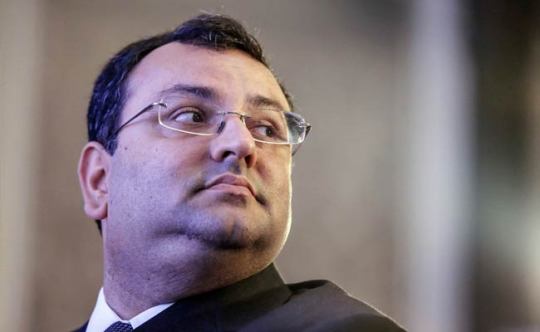
Cyrus Mistry was ousted from Tata Sons in October 2016.The National Company Law Appellate Tribunal (NCLAT) on Wednesday restored Cyrus Mistry as executive chairman of Tata Sons, news agency Press Trust of India (PTI) reported. The tribunal reversed the order of National Company Law Tribunal which dismissed Cyrus Mistry's pleas challenging his removal as chairman of Tata Sons. The tribunal said Mr Mistry was removed from the board after its members lost confidence in him. The Tribunal on Wednesday also held the appointment of Natarajan Chandrasekaran as executive chairman of the salt-to-software conglomerate as illegal, according to PTI.
Here is the chronology of events that have unfolded in Tata Sons-Cyrus Mistry case:
October 24, 2016: Tata Sons ousts Cyrus Mistry from the post of chairman; names Ratan Tata as interim chairmanOctober 25, 2016: Cyrus Mistry writes to Tata Sons' board accusing 'shadow control' by the Tata TrusteesDecember 19, 2016: Cyrus Mistry resigns as director from all Tata group firmsDecember 20, 2016: Mr Mistry moves National Company Law Tribunal (NCLT) alleging oppression of minority shareholders and mismanagementJanuary 12, 2017: Tata Sons names N Chandrashekaran as ChairmanFebruary 6, 2017: Cyrus Mistry removed from the post of director of Tata Sons' boardSeptember 21, 2017: Tata Sons' board approves plan to become a private companyJune 12, 2018: National Company Law Tribunal NCLT sets July 4 as date of orderJuly 4, 2018: NCLT defers judgement till July 9July 9, 2018: NCLT dismisses Cyrus Mistry's pleas challenging his removal as chairman of Tata Sons. The tribunal says Cyrus Mistry was removed as the board and its members lost confidence in him.December 18: National Company Law Appellate Tribunal (NCLAT) on Wednesday restores Cyrus Mistry as executive chairman of Tata Group. The tribunal also holds appointment of Natarajan Chandrasekaran as executive chairman of the salt-to-software conglomerate as illegal. Read the full article
#$0businessaccount#/webservices/rss/business_news.xml#0businessbalancetransfer#0businesscredit#0businesscreditcard#0businesscreditcardbalancetransfer#0businesscreditcardoffers#0businesscreditcarduk#0businessfinance#0businesslineofcredit#0businessloans#1august2018businessnews#1augustbusinessnews#1businessday#1businessdayfromnow#1businessdayishowmanyhours#1businessdaymeaning#1businessdayshipping#1businessdayshippingmeans#1businesslink#1businessparkdrive#1businessman#1businessmanfilm#2businessdayleadtime#2businessdays#2businessdaysfromfriday#2businessdaysfromtoday#2businessdaysmeaninginhindi#2businessdaysmeans#2businessideas
0 notes
Text
Cyrus Mistry Restored As Tata Sons Chairman By Tribunal After 3 Years
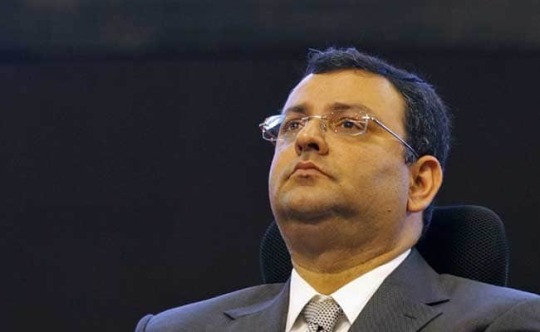
Cyrus Mistry was outsted from the board of Tata Group in October 2016The National Company Law Appellate Tribunal (NCLAT) on Wednesday held the appointment of Natarajan Chandrasekaran as executive chairman of Tata Group as illegal, and restored Cyrus Mistry as executive chairman of the salt-to-software conglomerate, news agency Press Trust of India reported. The development comes a year after the tribunal ruled that Tata Sons cannot force him to sell his shares till the disposal of his appeal.Mr Mistry was outsted from the board of the group in October 2016. He had taken over as chairman in December 2012 to replace Ratan Tata. Read the full article
#$0businessaccount#/webservices/rss/business_news.xml#0businessbalancetransfer#0businesscredit#0businesscreditcard#0businesscreditcardbalancetransfer#0businesscreditcardoffers#0businesscreditcarduk#0businessfinance#0businesslineofcredit#0businessloans#1august2018businessnews#1augustbusinessnews#1businessday#1businessdayfromnow#1businessdayishowmanyhours#1businessdaymeaning#1businessdayshipping#1businessdayshippingmeans#1businesslink#1businessparkdrive#1businessman#1businessmanfilm#2businessdayleadtime#2businessdays#2businessdaysfromfriday#2businessdaysfromtoday#2businessdaysmeaninginhindi#2businessdaysmeans#2businessideas
0 notes